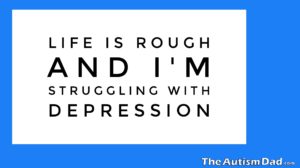****This is the second very special guest post by Rachel Cohen-Rottenberg of Journeys with Autism. She is heavily involved in raising awareness about the case of Amelia Rivera. Amelia Rivera is the little girl being refused an organ transplant because of “mental retardation”.
I spoke with Rachel and asked how I could help and she provided this post, which is the second. Please read these posts and help spread the word about this grave injustice.****
Over the past few days, the story of Amelia Rivera has made the local, national, and international news. It’s been picked up by such media outlets as the AP, NBC News, ABC News, Good Morning America, Fox, and CNN.
It’s nothing less than a miracle that this story has gotten so much attention, and it’s due to the efforts of thousands of people who are still shouting from the rooftops that what is happening to Amelia is wrong. I’m thrilled to see the story getting so much press.
But the exposure is also bringing the bigots out of the woodwork. In the comments sections, they’ve shown up in force, saying the same things, over and over, and patting one another on the back for how sensible they’re being.
To the unpracticed eye, they may not look like bigots. They’re not sprinkling their comments with racial, ethnic, or anti-Semitic slurs. Most of them aren’t throwing around words like “retard” or “mong.” And some of them are quite well-spoken, talking about “hard choices” and “cost effectiveness” and “quality of life.”
But beneath all of it — all of it — is a pervasive devaluation of the lives of disabled people. This devaluation is so pervasive that it’s like the air these people breathe: invisible and unnoticed. They don’t even question its existence. And with devaluation comes bigotry, just as surely as the sun rises in the morning.
I’ve been advising people not to get caught up in arguing with the commenters. I’ve left a response on a few stories, mainly to speak up for Amelia — and for all of us — for the sake of people who are open to questioning their assumptions. But I will not attempt to argue with a hatred that devalues human life; to do so is to assume that people are being rational when they are not. And I’m not going to read all of the comments, because they’re variations on a theme, and I’ve heard the song more times than I’d like to remember, and I could sing it to you by heart.
But I want to speak to the main tropes, because anyone with an interest in these issues is sure to run across them, and I’d like to help untangle what’s going on. And, truth be told, my interest is also personal: If I don’t deconstruct the mind-numbing bigotry in what I’ve read, I’ll be snarling at the comments inside my head for days to come.
1. Amelia should not get the transplant because the taxpayers will have to pay for her care for the rest of her life.
First, of course, we have a human life valued in dollars and cents. Second, we find the rather stark omission of the fact that able-bodied people reap the benefits of a society built just for them, and that disabled people are begrudged whatever we happen to get for ourselves. And third, we get the familiar trope of a disabled person as a burden — as though it were not an honor and an expression of our highest humanity to help to care for any person, disabled or not, and to provide the most dignified, safe, and fulfilling life possible.
2. Amelia shouldn’t get a kidney. A transplant is a precious gift. The kidney should go to a more deserving person who will have a normal, healthy, productive life.
Note the ellision of “deserving” with “normal.” Note the ellision of “healthy” with “normal” — as though a disabled person cannot also be healthy. Note the ignorance that says that to be disabled is automatically to suffer. Note the utter lack of consciousness that we suffer because of these kinds of statements and the kinds of discrimination they lead to. And, most importantly, note the pernicious idea that “normal” people are more deserving than disabled people because they can be “productive” — as though productivity and human worth were exactly the same thing, and as though human worth were not inherent in every person
3. Amelia’s parents are being selfish. The poor child. They should just let her die.
This is a version of Wouldn’t she be better off dead? Of course, this statement derives from a fear of disability on the part of able-bodied people, who would consider it a tragedy to be anything other than “normal.” It does not derive from any knowledge of Amelia’s present condition, which is wrongly assumed to be miserable. And it implies that the parents should just throw the child away, like a broken car part — an implication that would never be made were Amelia an otherwise able-bodied child who needed a transplant to save her life.
4. Amelia is only three years old. How can you put a cognitively disabled child through a painful procedure she has no way of understanding?
By this logic, you shouldn’t put any child through any painful procedure to preserve life. And make no mistake: If Amelia were a non-disabled child being denied a transplant, these same people would be screaming about medical neglect. The double standard is revealing.
5. Amelia’s doctors couldn’t possibly be denying her a transplant on the basis of her cognitive status alone. Amelia’s mother must have misunderstood — either that or she’s just trying to start a media storm.
In other words, Amelia’s mother is misrepresenting what happened. Of course, there is no basis on which to make this assumption. In fact, it bespeaks an extreme level of denial about widely accepted discrimination against intellectually disabled people when it comes to organ transplant, and it reflects a deep desire to rest easy in one’s illusion that doctors are always fair-minded and always exercise good judgment. If anyone says anything to threaten that illusion, as the Riveras have done, the response is that they either have some sort of hidden agenda or simply can’t grasp what’s being said to them. So rather than acknowledging that authority figures are human, and that some of them say unbelievably cruel and messed-up things, they attack the Riveras as being duplicitous or stupid. Or both.
6. I’ve had a transplant and have gone on to live a normal life, so I know the vetting process. It’s very complicated. They don’t just disqualify people based on intellectual ability.
This statement ignores the obvious fact that just because an otherwise able-bodied person wasn’t discriminated against, it doesn’t mean that discrimination doesn’t exist. This is like a white person saying, “I’ve never been discriminated against in a hospital, so it must not happen to people of color.”
What can you say to that except, “Wake up”?
7. We have to make these decisions based on quality of life, and disabled people have less quality of life, so they shouldn’t get the transplants if there are “normal” people waiting.
The assumption here is that disability is inversely correlated with quality of life: the more disabled you are, the less quality of life you have. Of course, there are many disabled people with a very good quality of life, and many non-disabled people with a very poor quality of life. Beneath the assumption that disability means poor quality of life is another: that if we do have a poor quality of life, it’s because of the condition of our bodies, not because we live in a society that discriminates against us at every turn. So rather than question why a disabled person might have a poor quality of life, people locate the problem in the disabled person.
It’s an excellent way to avoid making social change. After all, if the society just lets people like Amelia die, so the logic goes, the problem is solved, and everyone is absolved of responsibility. Except, of course, that no such absolution is possible.
8. There aren’t a lot of organs out there, and people need to make rational, objective, cold, and calculated decisions about who gets them.
The decision to deny an organ transplant only on the basis of intellectual disability may be cold and calculated, but it is certainly neither reasonable nor objective. It’s based on ignorance and prejudice, as are all the arguments for it.
9. God created Amelia’s condition, and we should just let God’s will be done. If her kidneys fail, that’s what God wants.
A person making such a statement would never suggest withholding medical treatment from a young able-bodied boy stricken with cancer, or a young able-bodied mother who comes down with pneumonia. But apparently, in the minds of those who say such things, God has a different standard for disabled people.
You know that God you don’t believe in? I don’t believe in that God either.
10. I don’t mean to sound harsh, but [insert statements 1-9 here].
The only answer I can give is to say, “Harsh doesn’t cover it. You’re being dehumanizing. Keep your mouth shut.”
These kinds of statements should be a wake up call to anyone who hasn’t yet understood that if Amelia Rivera can be denied life-saving treatment, it could happen to any one of us. If you feel moved to wade into the muck and respond to the comments on any of the major news sites, on this issue or others like it, please feel free to pick and choose from my responses. There is no use reinventing the wheel when we have social justice work to do. But mostly, I hope that you will keep your mind and your heart on the thousands upon thousands of people who recognize the worth and the dignity of every life. We are a force to be reckoned with.
© 2012 by Rachel Cohen-Rottenberg



I would share this on my blog in a heart beat. I don't have near the reach that you do. Thank you for helping share this story with us. I couldn't imagine someone telling me one of my kids couldn't have a life saving procedure because of their "disability". the thought makes me want to cry. What is wrong with humanity that we have stooped to this level of placing a monetary value on this child? Aren't we all deserving of a chance at life? Who are we to tell this child's family that she is not worth the same as a "normal" child? It breaks my heart.